Sleep is imperative for all your daily functions, but there are certain activities that you will falter at if you cut back on bedtime. For instance, your mental state tends to decline when you pull an all-nighter, you are more likely to catch a cold, and you likely can’t put in maximum performance at the gym. Yes, getting horizontal is important if your goal is to get swole. Experts are claiming that slumber might be the very thing that can keep you fit. According to Men’s Health, the restorative process of sleep is when the body gets stronger, repairing muscles. It’s also when the mind strengthens with clarity and focus. In essence, sleep acts as a performance-enhancing drug.
There are different stages of slumber and a few are important for making you stronger by repairing your muscles, as well as relieving any pain. According to Sleep.org, when you enter the NREM stage, or non-rapid eye movement, your tissue repairs with increased blood flow. When you reach REM state, which is rapid eye movement sleep, your body produces human growth hormones. This can help your muscles to relax, and relieve soreness or chronic pain. W. Christopher Winter, President of Charlottesville Neurology and Sleep Medicine points out that the body’s ability to produce this growth hormone while we sleep is what makes quality sleep so essential.
If you aren’t getting enough restorative sleep, your body’s ability to create muscle tone and boost your metabolism can be affected. Those who have low levels of growth hormone tend to have less muscle composition and more body fat. A study cited by Shape even claims that less than eight hours of sleep can potentially shrink your muscles since, as sports science professor Michele Olsen points out, lack of sleep causes your cortisol to remain at a high level. Those with busy lifestyles who would rather cut short their time in bed to work in an early workout aren’t necessarily doing themselves any favors. According to the Sync Project, a 2015 study found that sleep deprivation can adversely affect your exercise routine as well as your body’s ability to recover afterward. Not only that but it can affect both cognitive function and immune health which are both important components of a healthy body Sleep is an integral part of a fitness routine, especially if you want to be in tip-top shape for the big competition.
Winter claims that people who get more sleep will perform better not only the following day but accumulatively. He discovered that Major League baseball teams that were losing games were mostly due to jet lag from traveling. Basketball players who added two hours of sleep to their nightly routine experienced a five percent increase in reaction time and speed on the court. According to Men’s Health, Dr. Cheri Mah experimented with the Stanford basketball team where she had them sleep ten hours a night. The extra slumber resulted in a nine percent improvement in free throws and three-pointers. These could be reasons why a lot of professional sports teams have incorporated sleep chambers and nap rooms in their stadiums.
While professional athletes try to get at least ten hours of shut-eye before an event, Winter advises the average citizen to get seven to nine hours and claims that most people fall way short of that mark. Even increasing your average night’s sleep by fifteen minutes can make a difference, claims Dr. Meeta Singh of the Henry Ford Sleep Center. Keeping a sleep diet by getting to bed at the same time, making sure the room dark and cool, temperature-wise, and not having screens (computer, television, or phone) by your bed, are all ways of increasing your chance to dream. If that fails, catching a nap can help keep you fresh. According to Men’s Health, pros like Kevin Durant and Steph Curry make it a ritual to cat nap before stepping on a court so they stay focused for four quarters.
Exercise and sleep benefit each other and the positive results rely on each other. A study in Sleep Journal found that those who exercised at least four times a week were able to gain at least an hour and fifteen minutes more sleep per night, which is better than those who used pharmaceutical sleep aids to try and catch extra winks.
Still not able to get enough shut-eye even with your sleep diet adjustments and a good exercise regimen? Your nightly diet could be the culprit. If you like to imbibe several cocktails or eat sweets before bed, your cortisol levels can spike. Sugars can reduce your growth hormone production and interfere with your ability to sleep. Plus too much booze can create inflammation which will be a (literal) headache the next day. You are better off late-night snacking on some protein. Tim Snijders, a professor at Maastricht University, tells Shape that having 30 grams of slow-digesting protein before your head hits the pillow is a boost for muscles that need to repair themselves.
Next time you feel the urge to pull an all-nighter, press yes on that next episode in your Netflix cue, or set your alarm super early to jam-pack your schedule, think twice. Taking a short-cut on sleep is taking a step backward. When it comes to your health, if you don’t snooze, you lose.


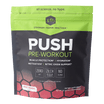
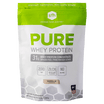

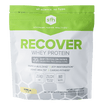

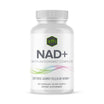



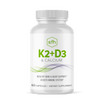

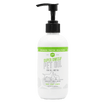







Leave a comment
This site is protected by hCaptcha and the hCaptcha Privacy Policy and Terms of Service apply.